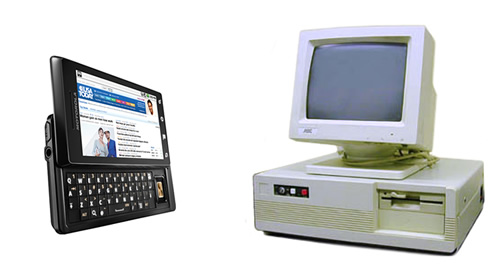There's no denying the current trend towards mobile computing. As more efficient CPUs and GPUs become available and storage densities increase, laptops have become a viable replacement to desktops for everyday computing tasks, while smartphones are often lifesavers when on the go. But will these rapid advances in the mobile space be enough to make desktop computers as we know them "irrelevant" in just three years?

That's what a Google executive recently told a baffled audience at the Digital Landscapes conference this week. Granted, he might have been fishing for headlines there with such radical thinking, or perhaps got carried away by Google's ambitions of centering on the cloud going forward. Put into the right context he actually made some potentially valid points, like the need to sharpen up results for mobile devices where there's limited multi-tasking and screen real state – Google has to get the information people need out in one click (or tap) rather than a few.
Given how ubiquitous and connected these devices have become it's clear why Google is making mobile its number one concern. But the fact remains that there are still many limitations with portable computing, and so much more stuff being done almost exclusively on desktops today, that sentencing them to irrelevancy in such a short timeframe seems ridiculous to say the least.
With the current trends in mind however would you agree that the mobile internet is set to make your trusty desktop PC irrelevant, perhaps not in three years, but in ten or fifteen? Has your mobile phone or laptop already replaced it in any aspects? Discuss.